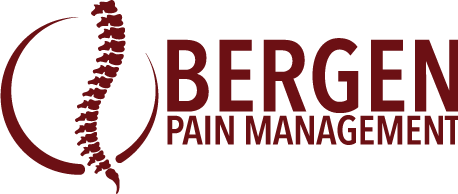The Best Treatment for Lower Back Pain from a Pinched Nerve
Lower back pain from a pinched nerve is no laughing matter—And neither is seeking treatment for lower back pain. Both require immediate attention to get you back to a normal, pain-free life as fast as possible. If not, the pain and discomfort will only get worse. And we don’t want that for you. In fact, we want to put you back in control of your life.
It’s important to understand this kind of pain is unique and presents itself in identifiable ways. If you’re wondering whether your back pain is from a pinched nerve, try asking yourself these five easy questions:
- Does it extend from your lower back into your buttocks, thighs, or down to your legs and feet?
- Is there any tingling, numbness, or a pins-and-needles feeling in your legs or feet?
- Have you noticed any weakness or lack of coordination in your legs?
- Does the pain become worse when sitting or standing for extended periods?
- Have you had any previous issues with herniated discs, spinal injuries, or conditions like sciatica?
If you said “Yes” to any of these questions, keep reading. There’s something you can do.
Why You Might Need Treatment for Lower Back Pain from a Pinched Nerve
The pain and discomfort aside, there are other serious reasons why you need treatment for a pinched nerve. Imagine the nerves in your spine as electrical cables. These cables send signals between your brain and your entire body. Can you imagine what happens when something affects one of these nerves?
When something squeezes one of these nerves or otherwise puts pressure on it, it disrupts the flow of signals between your brain and body. Of course, pain is your body’s first response; it’s your body’s way of telling you something’s wrong. However, this disturbance in signals can also trigger something else. It can trigger a tingling and numbness that runs all the way down to your legs and feet—It’s a traffic jam on a busy road. If left untreated, the consequences can be severe:
- Muscle Weakness: Prolonged pressure on the compressed nerve can result in muscle weakness. This muscle weakness can affect your ability to move or control your legs properly.
- Loss of Bladder or Bowel Control: In extreme cases, severe damage to the compressed nerve in your lower back can impact your bladder or bowel function.
- Chronic Pain and Disability: If left untreated and the underlying cause of the pinched nerve unaddressed, it could lead to ongoing pain and potential disability down the road.
And if you don’t seek treatment for lower back pain from a pinched nerve, the worst possible outcome is permanent nerve damage. The continual compression can potentially lead to long-term sensory changes or weakness in the affected area. In turn, this only multiplies against itself. Over and over again, it gets worse and worse. So, what can you do?
What You can do on Your Own
Not ready to call a doctor? That’s okay. There are some things you can do on your own. Depending on what caused your pinched nerve in the first place, the degree of pain you’re in, and what you’re physically capable of doing, there are some common steps you can take.
Be careful and see what works.
Here are some approaches you can try:
- Rest, Rest, and More Rest: Rest is always a good idea. Specifically, try to limit activities that make your pain worse. However, avoid prolonged bed rest. Too much can weaken muscles.
- Exercise and Stretching: Low-impact activities like walking, swimming, or yoga can improve flexibility and strengthen your back muscles, reducing pressure on the nerve.
- Cold and Heat Therapy: When you first notice any pain or discomfort, apply an ice pack for the first 48 hours to reduce inflammation. Then switch to a heat source to relax your muscles.
- Ergonomic Support: Try maintaining good posture and use proper body mechanics when sitting, standing, or lifting heavy objects. When sitting, support your lower back.
- Weight Management: Excess weight can strain your back and worsen nerve compression, so maintaining a healthy weight may help alleviate pressure.
As always, at least consult with a healthcare provider before starting any new treatment for lower back pain, especially if your pain worsens or persists. In the end, these remedies may not be permanent. Medical News Today recently put out an article echoing our sentiment. They said, “Anyone feeling pain from a pinched nerve that continues after regular treatments or lasts for more than a few days should report it to a doctor.”
If you want permanent relief, you might need to pick up that phone.
What a Spine Surgeon can do for You
Let’s just say the time comes when you’re ready to call a doctor. You’ve tried everything you can at home, but nothing seems to work. You need help, but you’re still nervous about what the process might look like. That’s okay. Like we said before, we’re here to put you back in control of your life.
First things first, it helps to know some of the things your doctor or surgeon might discuss with you. Specifically, a spinal surgeon might offer several interventions to help alleviate lower back pain caused by a pinched nerve. The three most common are:
- Laminectomy or Discectomy: These two procedures involve removing a portion of the bone (Laminectomy) or a part of the herniated or damaged disc (Discectomy) that is pressing on your nerve. By creating more space for your nerves to exist, these surgeries aim to relieve the pressure and alleviate the associated pain and symptoms.
- Spinal Fusion: In cases where there’s instability or excessive movement between vertebrae due to the pinched nerve, a surgeon might recommend spinal fusion. This treatment for lower back pain involves joining two or more vertebrae together using bone grafts or implants. In turn, it stabilizes your spine and reduces pressure on the nerve.
- Microdiscectomy: This minimally invasive surgical procedure involves removing small portions of the herniated disc that might be pressing on your nerve. Because of the special instruments used, microdiscectomies aim to alleviate pressure while minimizing damage to surrounding tissues and reducing recovery time compared to traditional open surgery.
You should consider these options when other more conservative treatments fail. Why? Because of their difference in application. These treatments are permanent. Consulting with a spine surgeon can help you determine the most suitable surgical approach for your case.
A Permanent Treatment for Lower Back Pain
Choosing the right path to address your low back pain that stems from a pinched nerve isn’t just about finding a temporary fix. Rather, it’s about reclaiming your life. It’s about being pain-free and in control. You’ve endured enough discomfort, and the consequences of leaving this untreated are severe.
Remember, this pain is more than a mere inconvenience; it’s a sign that something needs attention. It’s the signals between your brain and body being disrupted, causing discomfort, tingling, weakness, and possibly permanent damage. Not to mention the potential for loss of bladder or bowel control in extreme cases. That’s a road we don’t want you to travel.
But here’s the good news: You have options. You can start with self-care, the home remedies that provide temporary relief. But if you’re seeking a lasting solution, it might be time to consider professional intervention. However, the ultimate treatment isn’t just surgery. Rather, it’s about finding a trusted partner in your pain management journey.
At Bergen Pain Management, we believe in empowering you to take control of your life. We’re here to guide you, to listen, and to provide the personalized care and solutions you deserve.
Contact us today! We’re excited to hear from you.


